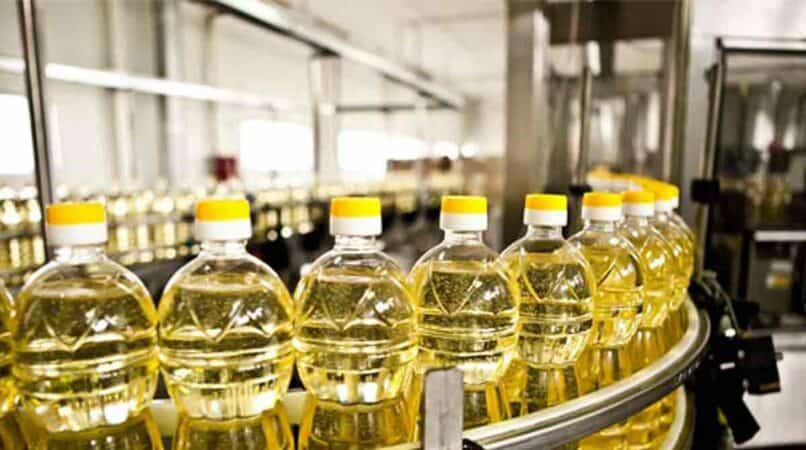Despite appeals to palm oil producers, by the Commerce Ministry, to maintain their ex-factory price at between 65 and 68 baht per one-litre bottle, the price of bottled palm oil has soared to over 70 baht per litre in most markets.
A random survey, conducted by Thai PBS reporters, shows the retail price of the bottled palm oil ranges from 70-76 baht in some markets and, while the price remains at 68 baht/bottle or lower in department stores, each customer can only buy six bottles at a time.
A grocery store-owner said that she had to increase the retail price because the cost of a pack of 12 bottles at the wholesaler is about 800 baht and, if she is to sell them at 70 baht each, she can only make about 3 baht per bottle.
To get around the Commerce Ministry’s appeal, some producers have turned to using smaller bottles to make more profit.
Crude palm oil prices on the global market increased substantially after Indonesia, a major producer, imposed an export ban on April 28th, in an effort to ensure that there is sufficient supply for domestic consumption.
Thailand’s Commerce Ministry has been reluctant to declare palm oil a controlled product, as most oil palm farmers are in southern provinces, a power base of the Democrat Party.
Due to the attractive export prices, several palm oil producers have increased crude palm oil exports to take profits.
In March, 112,000 tonnes of crude palm oil (CPO) were exported, compared to 15,887 tonnes in February.
Palm oil producers claim that the price of bottled palm oil should be 77-78 baht per litre bottle, due to high production costs. For instance, the price of oil palm seeds has increased to 13 baht/kg against the guaranteed price of 4 baht/kg.




